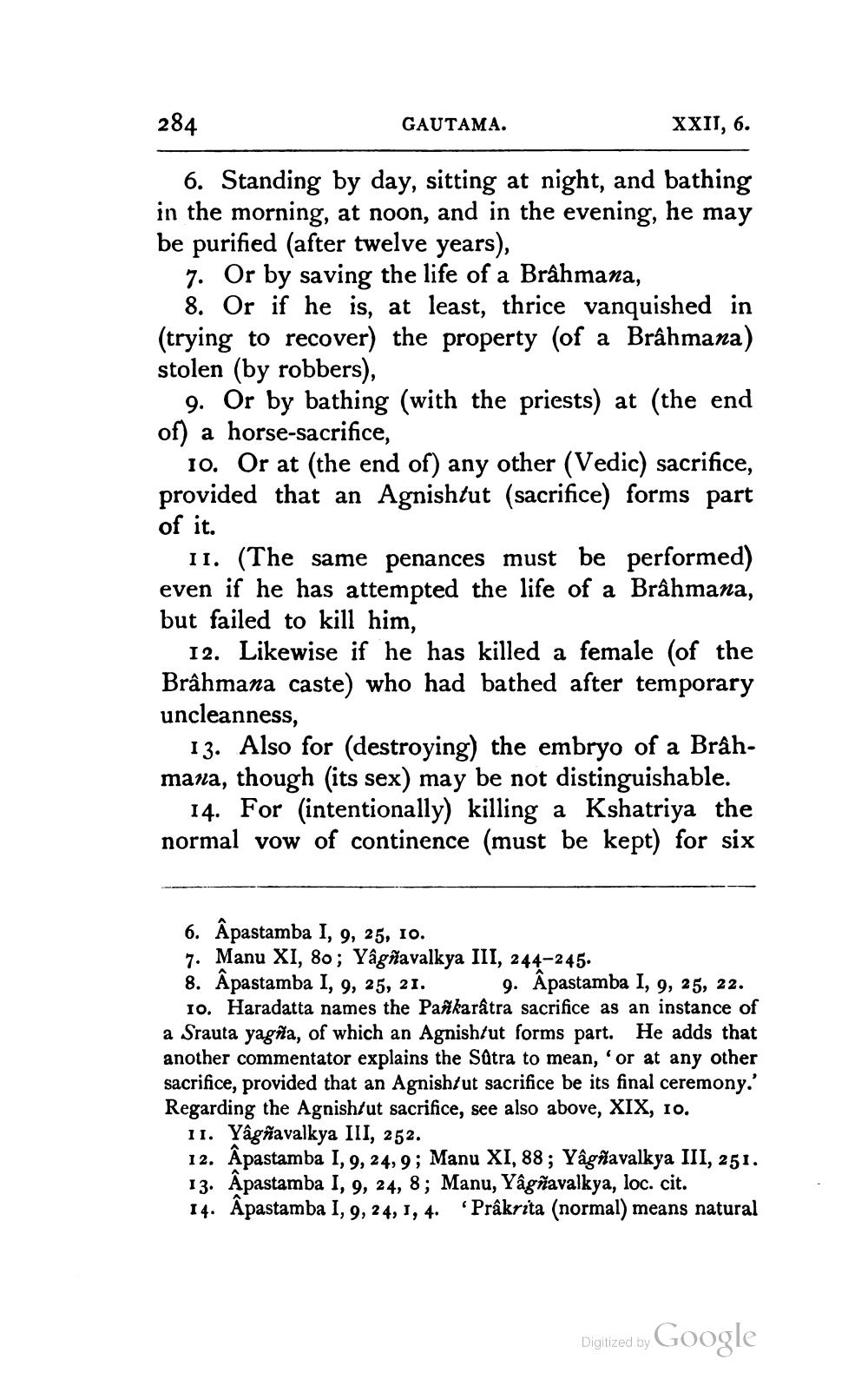________________
284
GAUTAMA.
XXII, 6.
6. Standing by day, sitting at night, and bathing in the morning, at noon, and in the evening, he may be purified (after twelve years),
7. Or by saving the life of a Brahmana,
8. Or if he is, at least, thrice vanquished in (trying to recover) the property (of a Brâhmana) stolen (by robbers),
9. Or by bathing (with the priests) at (the end of) a horse-sacrifice,
10. Or at (the end of) any other (Vedic) sacrifice, provided that an Agnishtut (sacrifice) forms part of it.
11. (The same penances must be performed) even if he has attempted the life of a Brâhmana, but failed to kill him,
12. Likewise if he has killed a female (of the Brâhmana caste) who had bathed after temporary uncleanness,
13. Also for (destroying) the embryo of a Brâhmana, though its sex) may be not distinguishable.
14. For intentionally) killing a Kshatriya the normal vow of continence (must be kept) for six
6. Âpastamba I, 9, 25, 10. 7. Manu XI, 80; Yâgħavalkya III, 244-245. 8. Âpastamba I, 9, 25, 21. 9. Âpastamba I, 9, 25, 22.
10. Haradatta names the Pankarâtra sacrifice as an instance of a Srauta yagña, of which an Agnishtut forms part. He adds that another commentator explains the Satra to mean, 'or at any other sacrifice, provided that an Agnishtut sacrifice be its final ceremony.' Regarding the Agnishtut sacrifice, see also above, XIX, 10.
11. Yâgñavalkya III, 252. 12. Âpastamba I, 9, 24,9; Manu XI, 88; Yâgñavalkya III, 251. 13. Apastamba I, 9, 24, 8; Manu, Yâgñavalkya, loc. cit. 14. Apastamba 1, 9, 24, 1, 4. "Prâkrita (normal) means natural
Digized by Google




